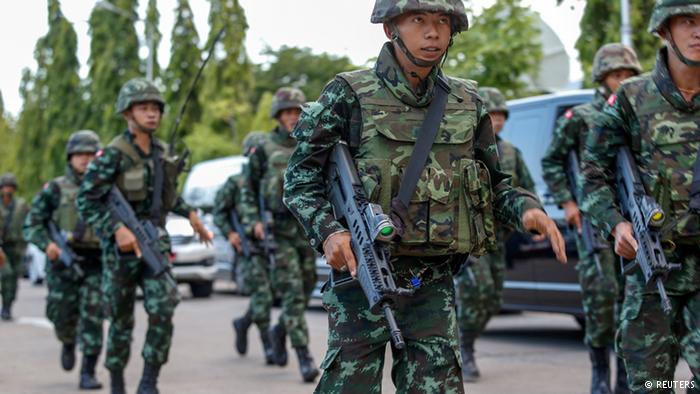The resolution at this year’s Munk Debates, a world-renowned public debating forum, had a true dilemma at its core, one that has become more acute over the past year. The motion read: “Be it resolved the West should engage, not isolate Russia”. Stephen Cohen, a leading Russian Studies scholar, and Vladimir Pozner, a veteran journalist and commentator on Russia-US relations, debated the pro side while Anne Applebaum, a Russia expert and foreign affairs columnist, and Garry Kasparov, a Russian opposition leader and former chess champion, debated the con side.
Who caused the problem?
Debaters squared off on who is most at fault for Russia’s relations with the West deteriorating to their lowest point in decades. The con side pointed the finger at Putin for running Russia as a “mafia state” where a corrupt elite controls most of the wealth, the rule of law is absent, and nearly full state control of mainstream media is exercised. As Kasparov colourfully put it, “chess has fixed rules and unpredictable results; Putin’s Russia is the opposite”. Therefore, they argued, the best way of dealing with a recalcitrant Russia is through isolation, including of its powerful oligarchs whose business interests are closely tied to Western financial institutions and markets.
The pro side argued that it is precisely the West’s policies to date, deliberately aimed at isolating and weakening Russia, that have led to a resurgent state trying to re-assert itself on the world stage. Pozner emphasized that the West failed to acknowledge Russia’s historical role as a powerhouse, deeply wounding its national pride. This “we don’t care about you anymore, shut up” attitude humiliated Russia and paved the way for a leader like Putin. A key manifestation of this disregard was NATO’s expansion in Eastern Europe, which Cohen noted was not only an antagonizing move, but also in breach of an agreement made by the US with the Soviet Union on the eve of the fall of the Berlin Wall. To the pro side, the manner in which Russia has been pursuing its legitimate interests is a direct result of the West’s policy of non-engagement, which has not worked until now and will not into the future.
On the question of how we got to where we are, Cohen’s and Pozner’s position was effectively refuted. Applebaum disarmed their central theme on the West’s policy of alienating Russia by naming some of the Western political (G8, the Council of Europe) and economic (WTO) “clubs” that have readily opened their doors to Russia since the 1990s. She also pointed out the spheres where Russia and the West have enjoyed close cooperation and noted the much trumpeted “reset” of US-Russia relations under President Obama. Meanwhile, Pozner’s insistence on media freedom looked feeble and Cohen’s assertion that Putin pleaded with the West for acceptance rang hollow.
What is the best solution?
Both teams debated the two competing policy directions at a high level, with few mentions of concrete strategies or their potential outcomes.
Applebaum and Kasparov drew a much more convincing picture of modern Russia than their opponents, but they were less capable in explaining how a policy of isolation will work. The con argument boiled down to the following: Putin’s Russia has proven that it cannot play nice and should therefore be kicked out of the sandbox.
Conversely, while derived from a problematic account of the recent history of Russia-West relations, Cohen and Pozner made a compelling case for why Russia should be engaged, not isolated. Their position rested on three arguments: Russia is too big and powerful to be effectively isolated; shunning Russia will only worsen the situation by playing into Putin’s narrative and encouraging collaboration with dangerous regimes; the West is better served by Russia as friend than foe, as it can be a valuable partner on shared threats such as terrorism.
While the pro-isolationism argument had moralistic tones, the pro-engagement argument sounded more practical. At the heart of an isolationist policy is an imperative to punish the culprit. But as Cohen rightly noted, the West should be less preoccupied with Putin as villain and more focused on its own interests. Neither Applebaum nor Kasparov took their argument far enough, leaving an essential question unanswered: how will a policy of isolationism lead to the normalizing of Russia’s relations with the West? Applebaum implied that cutting Russia off will put pressure on its economy and force it to change its tune, but as Cohen pointed out, Russia will (and has) simply turned elsewhere.
While also light on specifics, the pro side made a stronger case. In his concluding remarks, Pozner listed both the risks of isolation and the benefits of engagement. He concluded that the best path towards fundamental change in Russia is by supporting organic evolution from the inside, which can only be possible if the door remains open.
Both sides spent a disproportionate amount of time dissecting the problem rather than deliberating the solutions. This focus on looking back rather than forward perhaps underscores the magnitude of the policy dilemma that Russia continues to pose for the West.




